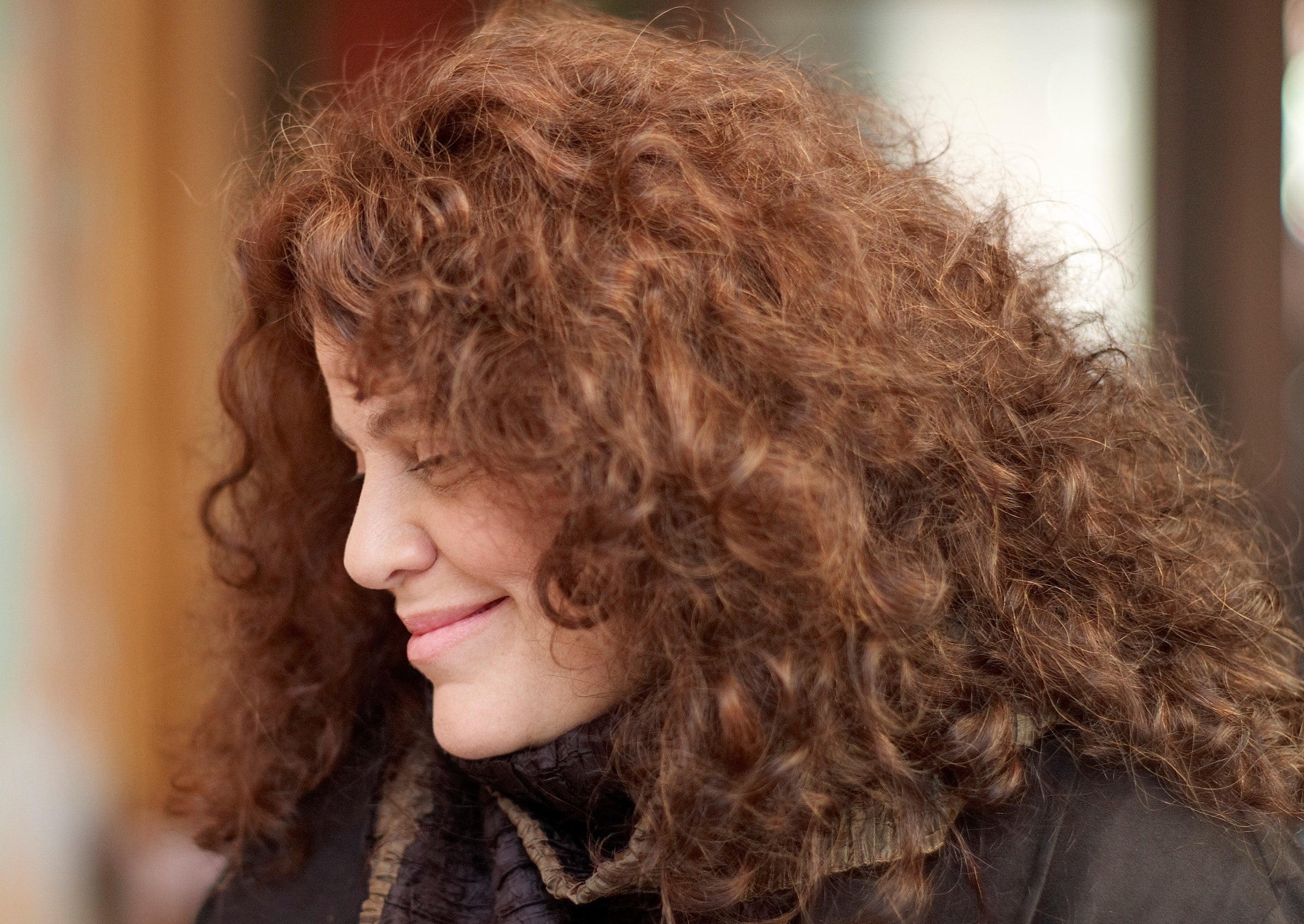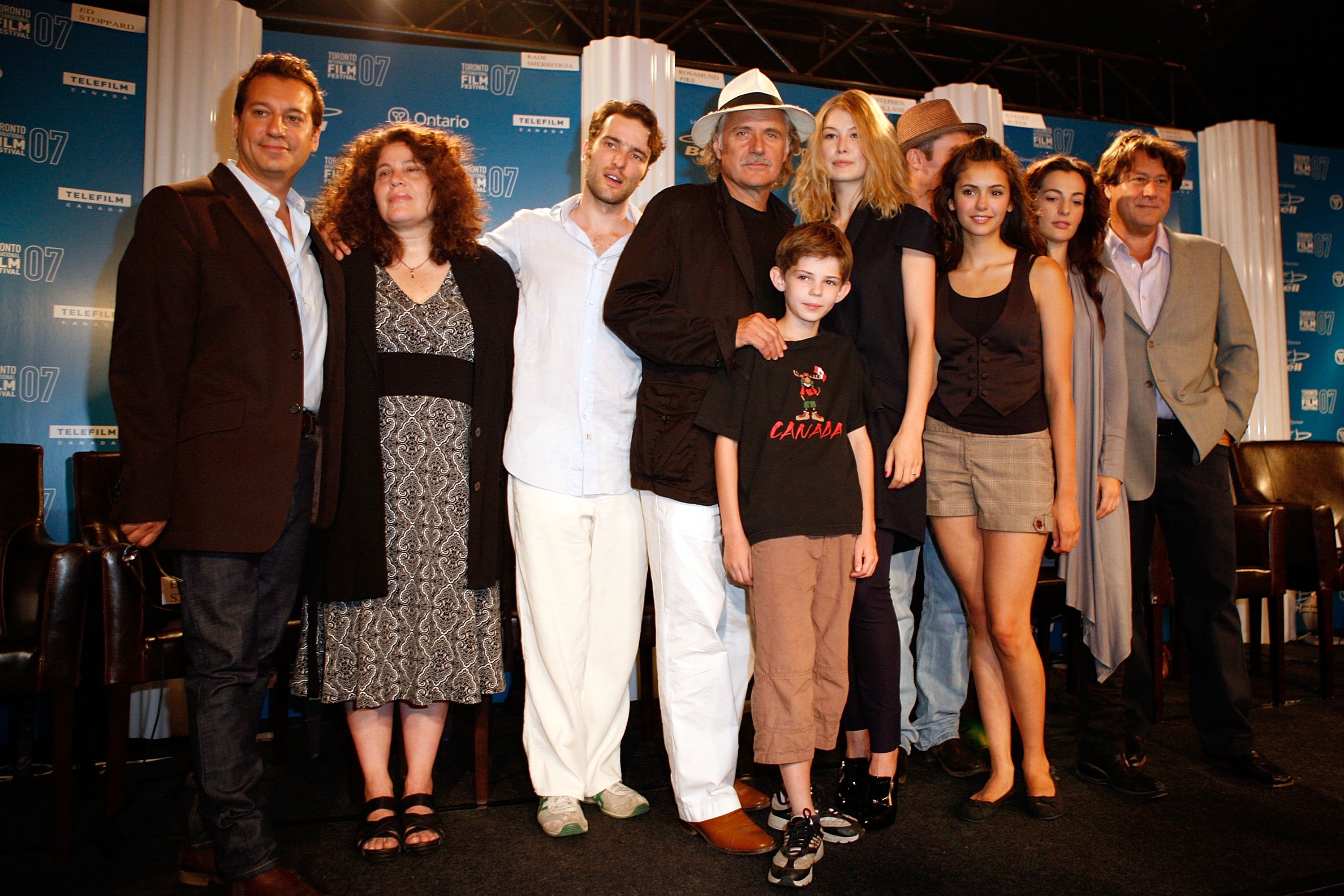War, ghosts and poetry: Inside the intense mind of Canadian novelist Anne Michaels
Her bestselling Holocaust novel ‘Fugitive Pieces’ was made into a film and stayed on the most-read lists for two years, but poet and writer Anne Michaels has been keeping fans waiting between books. She gives a rare interview to Claire Allfree to talk about her new novel ‘Held’ and why she is so drawn to war as subject

The first thing Anne Michaels wishes to know is whether my two children have recovered from a vomiting bug that wiped out our weekend. It’s a charming surprise – I had expected the 65-year-old author of the global bestseller Fugitive Pieces to be rather remote, as befits her somewhat austere reputation as a writer who rarely reveals much about her private life. But no, she is delightfully solicitous and, on Zoom, looking radiant, the light behind her desk giving her hair an incandescent glow. I do know she has two children, now grown up, herself, and suggest it must be a relief to her to no longer have to worry about vomiting bugs in babies. “Yes,” she says in her measured Canadian drawl, punctuated throughout our conversation with bursts of warm easy laughter. “But of course, the attention never wavers.”
That philosophy seems to get to the core of Michaels not just as a mother but a writer. An award-winning poet and novelist born and based in Toronto, she is known most for 1997’s Fugitive Pieces – the story of a child rescued from the horrors of the Holocaust who later finds a salvation of sorts as a poet – which won the Orange Prize for Fiction and was later made into a film starring Rosamund Pike and Stephen Dillane. It’s a tremendous piece of work, combining intellectual rigour with poetic delicacy, and, perhaps surprisingly for such an unrepentantly literary book, became an enormous hit. The novel remained on the Canadian bestseller lists for two years and was taken to heart by readers across the world, in ways only a few novels manage to do. “I got sent so many emails and letters about that book, and I answered every single one,” she says with a smile. “The idea of talking mind to mind, heart to heart with readers means everything to me.”
She followed it a whole decade later (Michaels is no Jeffrey Archer) with The Winter Vault, about a couple whose lives are dramatically affected by the building of the Aswan dam in Egypt in 1964. And now, a decade on once again, comes her new novel, Held. Like all her work, it is deeply immersed in the question of how to memorialise the past and in acts of public and private remembrance; the book darts like a swallow between the lives of various people at historically charged moments, mainly in the 20th century. What took her so long? “I’ve been writing poetry as well,” she says (she also writes for the stage, and teaches at the University of Toronto). “But this novel has been pretty all-consuming. It’s saturated with research – philosophy, science, history in particular. I didn’t want the history to be overt though – I wanted it to be glinting under the surface. So much labour has been spent to make something that I hope is alive on the page to another human being.”
Held contains not one story but many, some held within each other like Russian dolls, others floating free. There’s the story of John, a traumatised First World War vet and portrait photographer who is amazed when ghostly images of lost loved ones start to appear in his portraits. There is his wife Helena, whom we meet decades on, a widow, working as an artist’s muse. There’s Anna, her daughter, who becomes a field doctor, and her daughter Mara, also a doctor drawn to helping the victims of war. There’s an encounter between Marie Curie and the revolutionary nuclear physicist, Ernest Rutherford in 1903, and the story of two musicians fleeing Soviet-controlled Estonia in 1980. I tell her, half-jokingly, that I kept feeling cheated by the novel: no sooner had I fallen for one set of characters and the specifics of their emotional situations, then whoosh, the novel picked me up and plunged me into the fabric of a different life entirely. “That was very deliberate,” she says. “I wanted to capture the idea of an individual life brimming over, the idea that it can’t be summarised or contained. And I liked the idea of one life spilling over into another. Of one life span spilling into another.”
Michael’s novels seem to spill over into each other, too. The immense upheavals of the Second World War in Fugitive Pieces led to a broader examination of cultural and geographical displacement in The Winter Vault, for instance. “One book always leads to the next for me,” she says. “You reach that point where the novel has taken you to another question and, in order to answer it, you’d have to completely explode the weave of that novel to make it fit. So the question becomes the next book.” Which begs its own question: what led her to Held?
I got sent so many emails and letters about that book, and I answered every single one
“It struck me there was quite a profound moment at the beginning of the last century when science and technology began to become perilously conflated,” she says. “Technology suddenly allowed us to see into the invisible world, be it with X-rays or experiments with particle physics. And not only were we able to perceive that invisible world, we were able to manipulate it. That seems to have displaced something of our ancient relationship with the invisible that has always underpinned our humanity, and which has an enormous value, because there are always things we cannot know. And we need a placeholder for that, something that recognises that.”
Michaels writes – and sometimes talks – with a powerful feel for the numinous. Throughout Held, characters are bound by the ways in which they honour those who have died, and how the dead live on in the lives of those who have loved them. Is she sympathetic to those who seek affirmation of the afterlife? “In our heart of hearts, who is not seduced by that idea,” she says with a chuckle. “Who does not seek that sort of consolation? The idea of our own mortality is a very human idea, and our relationship to that is very profound. And you think of the First World War, and its unprecedented losses, for which in so many instances there wasn’t even a body. So of course, in the years that followed, people became very susceptible the idea of ghosts.”

Yet it would be a mistake to dismiss Michaels as even remotely fanciful. Her work is deeply engaged with the defining events of modern history. War, particularly the Second World War, is an abiding theme. Why is she so drawn to the reverberations of conflict?
“You can’t have lived through the 20th century without war being a prominent part of your life,” she says. “In Held I’m particularly interested in the relationship between a large historical moment and a deeply personal event. Because war is fought in our most intimate places. A hospital is bombed. A nursery is bombed. The places we feel most sheltered are taken from us in war.” There’s a line in the novel that says historians regard each battlefield as unique, whereas philosophers regard them as all the same. Does she see herself as a historian or a philosopher? “Alas, both, I think,” she says. “Where do you begin to count the dead? But every conflict has its origins in the past. And unless you have an understanding of that you can’t begin to get to the source. Otherwise we are doomed to experience history [on the basis of] when we decide the grudge begins. But every time you do that you are changing the perpetrator. History becomes an endless self-serving question.”

It would be crass at this point to suggest Michaels is talking about the current crisis in the Middle East, although she may well be. In previous interviews it has been suggested that she is Jewish – she is the youngest child of a Polish father and a Canadian mother and was born in Toronto in 1958. Yet she refuses to confirm either way. She steadfastly refuses to talk about herself or her private life. Her Wikipedia page has barely any biographical information at all. It’s a refreshingly unfashionable stance that bucks the current literary obsession for autobiographical authenticity.
“I spend an awful lot of time making space for the reader’s own life in my work,” she says. “My purpose is not to impose my life on the work but to ignite a conversation.” That gets to the heart of her work, I think: for all its distracting beauty, it’s ferociously engaged in the fundamental universal difficulties of being alive. “Literature should be transformative,” she says. “Not just because it changes us in some way, but because of the ways it makes us think about things we really don’t want to think about.”
‘Held’ is published by Bloomsbury, £16.99



Join our commenting forum
Join thought-provoking conversations, follow other Independent readers and see their replies
Comments